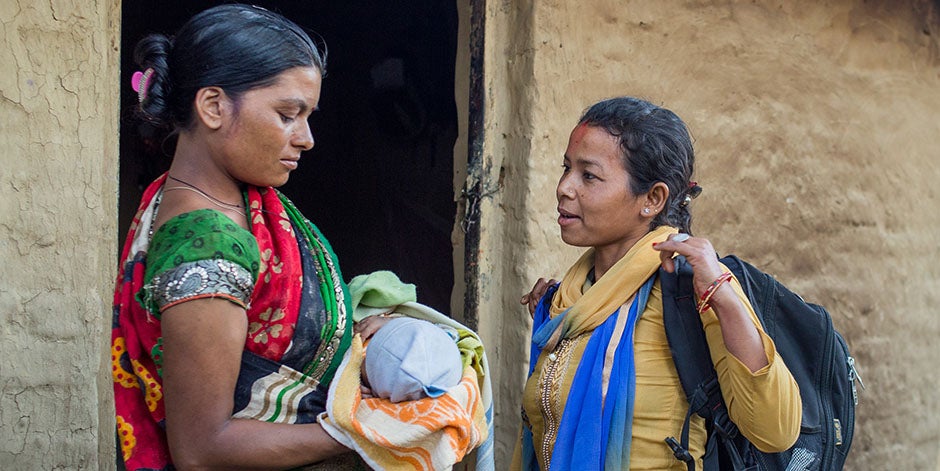FACT Project’s Roving Auxiliary Nurse Midwife Service Delivery Intervention

Addressing deep-seated social, structural, and geographic barriers to enhance the reach of formal health services.
In partnership with the Family Health Division and the Rupandehi District Public Health Office within the Ministry of Health, the FACT Project has piloted the Roving Auxiliary Nurse Midwife (RANM) model in select communities in Rupandehi, Nepal. Through this community based intervention, RANMs provide direct family planning services at the household level in marginalized communities to improve maternal and child health outcomes. The goal of this pilot project was to inform the Government of Nepal’s health policies by understanding how RANMs could contribute to health coverage to. By engaging households, providing services, and linking communities to health centers, the RANMs improved health outcomes for communities facing structural and geographical barriers to adequate health care.
The intervention was implemented over a 15 month period in 2017 and 2018 in marginalized communities of Rupandehi. RANMs collaborated with other community health volunteers to identify priority households to conduct group education sessions. RANMs offered services related to family planning, antenatal care, postnatal and newborn care, and nutrition counseling. Additionally, RANMs used the Pragati games with community members to facilitate conversations around fertility awareness, myths and misconceptions associated with various family planning methods, and social norms that drive birth timing and family size.
The intervention benefited from an iterative process that facilitated rapid identification of gaps and sought quick and low burden improvements that fit the context of Nepal. Through a combination of home visits, community activities, and mobilization of influential people and community members to expand conversations around social norms and reproductive health, the RANM intervention was successful in reaching marginalized households and linking community members to the formal health system.
The RANM intervention materials include: 1) a guidance manual which describes the package of services that RANMs provided at both the household and community levels and 2) a resource packet including materials related to orientations, identifying households within marginalized communities, and monitoring of planned activities.
Watch the RANM micro-documentary. The video was filmed in Rupandehi, Nepal and highlights the intervention and community members’ experiences.
Download the entire RANM Guidance English | Nepali
 Where We Work
Where We Work  Press Room
Press Room  FACT Project
FACT Project  Passages Project
Passages Project  Learning Collaborative
Learning Collaborative  Search All Resources
Search All Resources  Social Norms
Social Norms  Fertility Awareness Methods
Fertility Awareness Methods